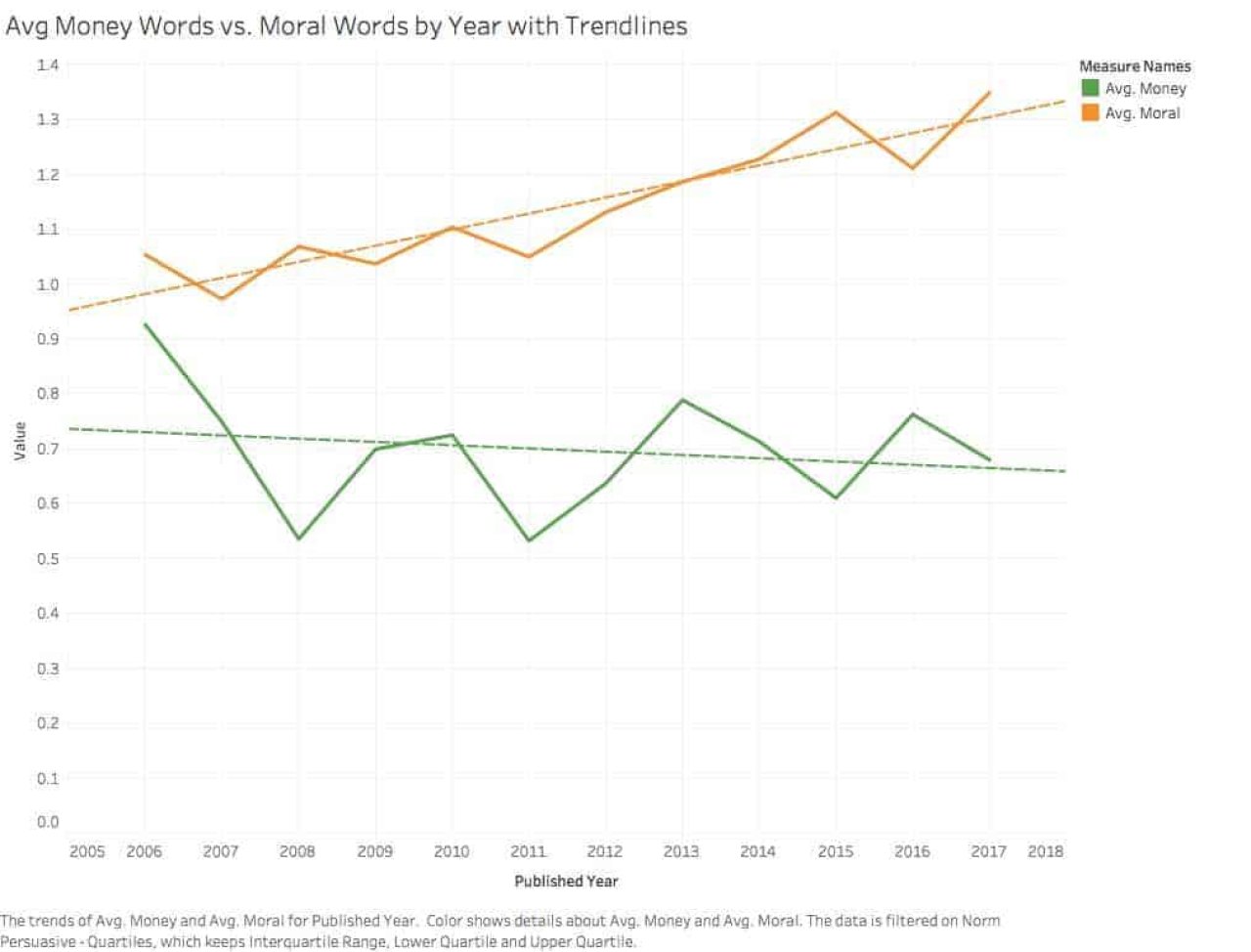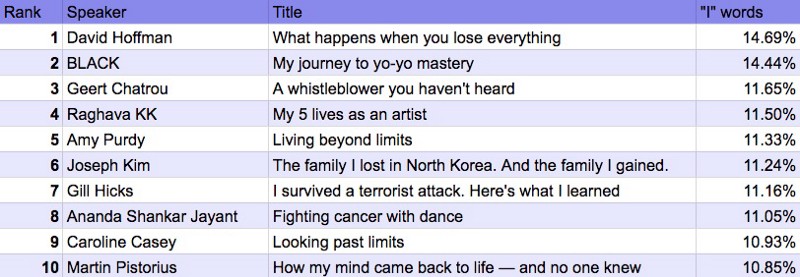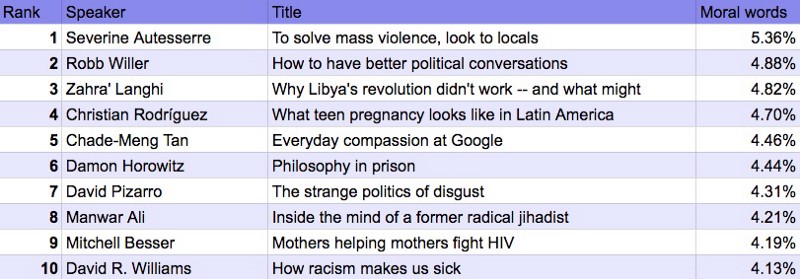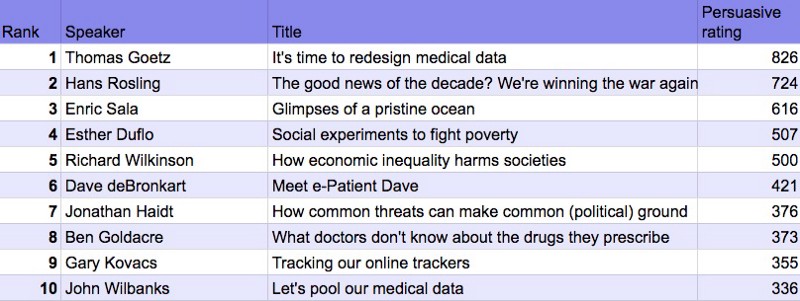























Jun 14, 2018
Ian Greenleigh

Owen Temple (@owentemple) was curious: What makes some TED Talks so persuasive?
To get his answer, he applied Natural Language Processing and Machine Learning to metadata and transcripts of all posted TED Talks and published Words of Persuasion: Text Predictors of Persuasive TED Talks.
I found that the change in negative and positive emotion words across the talk and the speaker’s use of key social pronouns like ‘I’ and ‘we’ made a big impact on persuasive ratings [by TED.com viewers].
Frequent use of the words ‘I’, ‘me’, and ‘my’ is associated with narcissism, depression, and reduced persuasiveness ratings. Here are the most self-focused TED Talks (click for full ranking).
 Top 10 TED Talks by % of “I” words in talk (full list)
Top 10 TED Talks by % of “I” words in talk (full list)Owen revealed that “Money words and Moral words were predictive of increased persuasion ratings,” and “the average percentage of Moral words has increased over the past decade while the average percentage of Money words has remained flat.”
 Have persuasive topics changed over time?
Have persuasive topics changed over time?Check out the talks containing the highest percentage of moral words (click for the full ranking).
 Top 10 TED Talks by % of moral words in talk
Top 10 TED Talks by % of moral words in talkThomas Goetz’s talk “It’s time to redesign medical data” leads the persuasion pack for talks about data. Check out the top 10 most persuasive talks about data (click for the full ranking and to find the most persuasive talk by any other keyword).
 Top 10 TED Talks about data by persuasive rating
Top 10 TED Talks about data by persuasive ratingMany speakers try to be funny, but who actually succeeds? Owen ranked them by laughs per minute. Here are the 10 funniest TED Talks (click for full ranking).
 Top 10 TED Talks by laughs per minute
Top 10 TED Talks by laughs per minuteOwen’s data project and website are both packed with related insights for data nerds and aspiring speakers alike.

Owen Temple (@owentemple) was curious: What makes some TED Talks so persuasive?
To get his answer, he applied Natural Language Processing and Machine Learning to metadata and transcripts of all posted TED Talks and published Words of Persuasion: Text Predictors of Persuasive TED Talks.
I found that the change in negative and positive emotion words across the talk and the speaker’s use of key social pronouns like ‘I’ and ‘we’ made a big impact on persuasive ratings [by TED.com viewers].
Frequent use of the words ‘I’, ‘me’, and ‘my’ is associated with narcissism, depression, and reduced persuasiveness ratings. Here are the most self-focused TED Talks (click for full ranking).
 Top 10 TED Talks by % of “I” words in talk (full list)
Top 10 TED Talks by % of “I” words in talk (full list)Owen revealed that “Money words and Moral words were predictive of increased persuasion ratings,” and “the average percentage of Moral words has increased over the past decade while the average percentage of Money words has remained flat.”
 Have persuasive topics changed over time?
Have persuasive topics changed over time?Check out the talks containing the highest percentage of moral words (click for the full ranking).
 Top 10 TED Talks by % of moral words in talk
Top 10 TED Talks by % of moral words in talkThomas Goetz’s talk “It’s time to redesign medical data” leads the persuasion pack for talks about data. Check out the top 10 most persuasive talks about data (click for the full ranking and to find the most persuasive talk by any other keyword).
 Top 10 TED Talks about data by persuasive rating
Top 10 TED Talks about data by persuasive ratingMany speakers try to be funny, but who actually succeeds? Owen ranked them by laughs per minute. Here are the 10 funniest TED Talks (click for full ranking).
 Top 10 TED Talks by laughs per minute
Top 10 TED Talks by laughs per minuteOwen’s data project and website are both packed with related insights for data nerds and aspiring speakers alike.
Get the best practices, insights, upcoming events & learn about data.world products.